(July 14, 2025) In January 1974, a 20-year-old Gloria Arieira stepped onto Indian soil from Brazil for the first time. She wasn’t chasing adventure or exoticism. She had arrived with a longing for truth, drawn by an inner call that no religious doctrine in her native land had answered. At the time, she had no idea that four decades later, this journey would lead her to the Padma Shri, one of India’s highest civilian honours. “I have been teaching Vedanta for 45 years, in Rio de Janeiro, across Brazil, and in Argentina and Portugal, the Brazilian exponent of Vedanta shares with Global Indian.
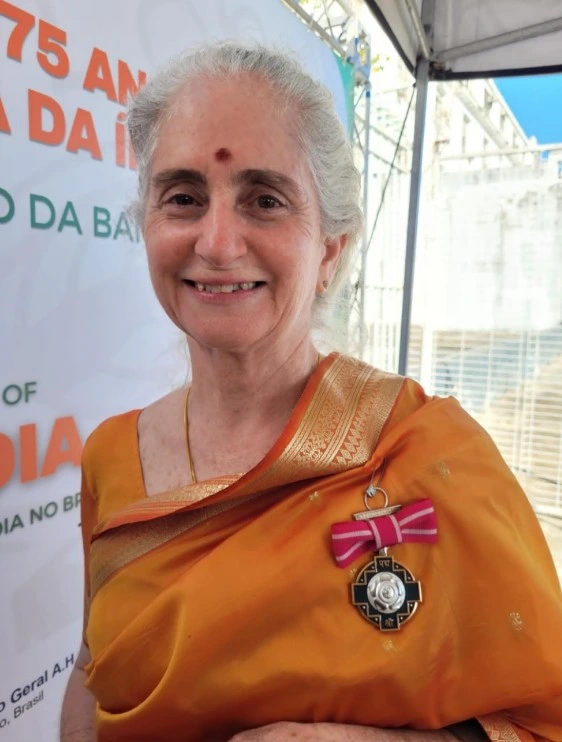
Gloria Arieira
A search for meaning that led to India
From a young age, Gloria questioned religious interpretations of God. “Early in my life I got frustrated from the way the religions I came in contact spoke about God. It made no sense at all, but still I felt there has to be a God, a cause, for this universe,” she mentions. This spiritual restlessness reached a turning point in September 1973, when Swami Chinmayananda from India visited Brazil. “When he talked about God as the intelligent and material cause of the universe, nimitta-upādāna-kāraṇa, it all made sense. I asked him how I could study more, and he told me about Sandeepany Sadhanalaya in Mumbai.”
Just four months later, Gloria and her husband, who also shared a passion for Vedanta, were en route to India. Portuguese, her mother tongue would later become a bridge between Indian spiritual knowledge and thousands of seekers across Brazil, Argentina, and Portugal. Portuguese is a vital cultural and linguistic link across Brazil, Argentina, and Portugal, serving as the official language of both Brazil and Portugal. Brazil remains the only Portuguese-speaking country in Latin America due to a long Portuguese colonial rule, and the language is gaining significance in Argentina due to its proximity to Brazil and growing regional integration.
Gloria’s personal quest evolved into a lifelong devotion to India’s spiritual and cultural heritage. It was a journey that would one day see her honoured with India’s prestigious Padma Shri award in 2020 for her contributions to Sanskrit and Vedanta in the Portuguese-speaking world.
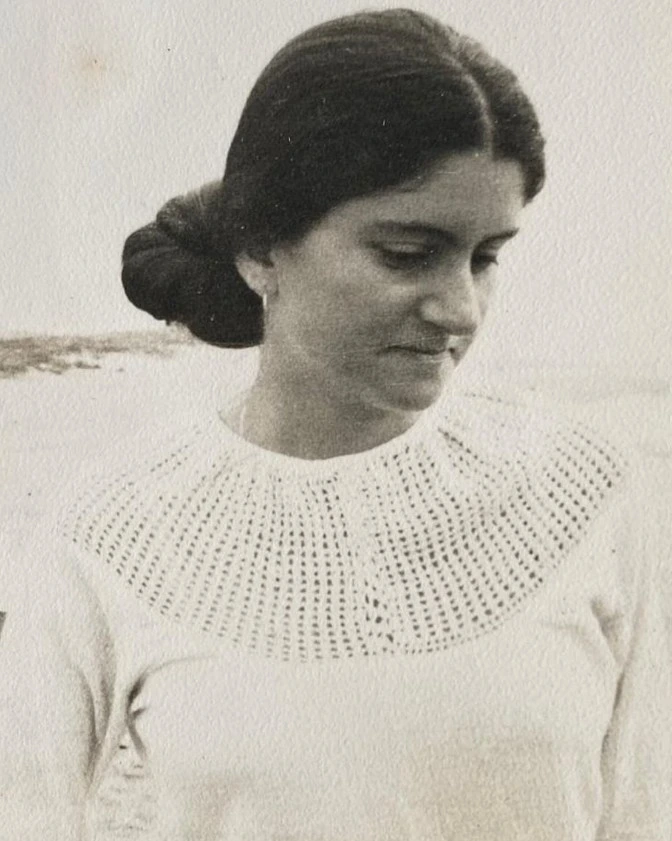
Gloria Arieira during her India visit in 1977
Enduring bridge between India and Brazil
The recognition bestowed by the Indian government on Gloria Arieira stands as a tribute to the enduring cultural and spiritual bridge she has built between Brazil and India.
This bridge was strengthened recently by the visit of Prime Minister Narendra Modi who became the first Indian PM in 57 years to undertake a state visit to Brazil. “It was an honour for Brazil to have Modiji come to our country,” she says with warmth. “I personally have great respect and admiration for him, for all that he has been doing for India and to protect the rich and unique tradition of India,” she adds.
A disciple’s path through India’s sacred geography
Between 1974 and 1978, Gloria studied under Swami Dayananda, one of India’s most respected teachers of Advaita Vedanta. She stayed in ashrams in Mumbai, Rishikesh, and Uttarkashi, delving deep into the scriptures and soaking in the rhythms of Indian spiritual life.
Over the nearly five years I lived in India, I was able to understand more deeply what initially enchanted me.
Gloria Arieira
Her training was intense. Days were spent immersed in the Upanishads, the Bhagavad Gita, and Sanskrit grammar, but she also learned through everyday experience. She traveled to Tamil Nadu and Kerala, attended discourses, and visited sacred sites that connected philosophy with lived tradition.
View this post on Instagram
India beyond labels
One of the things that struck Gloria most deeply was the way Indian culture transcended formal religion. “India is a land of deep-rooted civilization, with a unique origin, immense cultural significance, and lasting wisdom,” she says.
She recounts an unforgettable experience from a communist rally in southern India. “Just before the speakers began, they lit a traditional oil lamp, which is a gesture of reverence typically seen in Hindu rituals. Even though communists do not believe in God, they still performed this with reverence. It shows how Indian culture is deeply embedded, beyond politics or religion.”
Whether it was the removal of shoes before stepping onto a stage or the offering of tea to a stranger, Gloria came to realize that Indian culture is not just practiced, it is lived.
Knowledge as a sacred value
For Gloria, one of India’s greatest treasures is its veneration of knowledge.
In India, knowledge defines a person’s dignity and worth, more than money or social status.
Gloria Arieira
The tradition of Guru Purnima moved her deeply. “It is not just a holiday. It’s a day of offering gratitude to one’s teachers, often with gifts and reverence.” Gloria considers the highest academic degree she has received to be the one from her Guruji in India.“It was from my Guruji, Swami Dayananda-ji, who taught me and entrusted me to teach Vedanta in Portuguese. His confidence in me is the highest degree I have,” she remarks. Decades later, when she received the Padma Shri, she saw it as another ‘important though unexpected credential,’ this time from the Indian government.
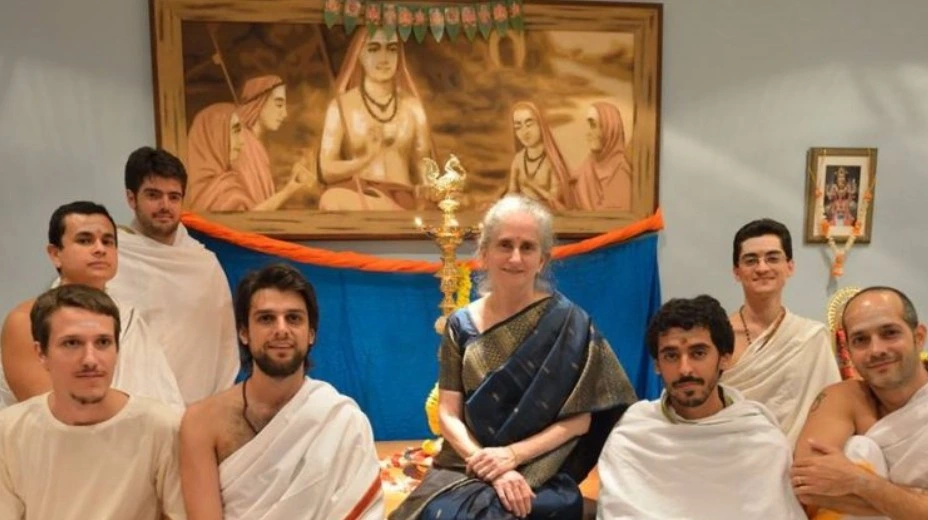
Gloria Arieira with some of her pupils
Bringing Vedanta to Brazil and beyond
Upon her return to Brazil in the late 1970s, Gloria began teaching Vedanta and Sanskrit in Rio de Janeiro. In 1984, she founded Vidya Mandir Centro de Estudos de Vedanta e Sânscrito, a non-profit institution that has since become a trailblazer in spreading Indian knowledge in Latin America.
“Maybe a few thousand people have studied with me over the years,” she notes humbly. I used to teach several classes a day and also traveled frequently to teach.” These days, the 72-year-old teacher teaches five classes a week and has been travelling to Portugal regularly for the past ten years to continue sharing Vedanta. With about 200 students currently enrolled, Vidya Mandir also has alumni who now teach Vedanta themselves. “Many of my students are now teachers too,” she says proudly.
Through her publishing house, Vidyamandir Editorial, Gloria Arieira has translated major Sanskrit works including the Bhagavad Gita, the Upanishads, and many of Swami Dayananda Saraswati’s writings into Portuguese. She is also the author of two original works: Millennials Prayers and Puja – The Performance of a Vedic Ritual.
Challenges and support
Starting and sustaining Vidya Mandir wasn’t always easy, but Gloria acknowledges the blessings that came her way. “I had support from my family and from my students. Both were ready to help whenever needed,” she says.
It was due to their support that her work extended beyond Brazil, reaching Portugal and even Argentina, where she has been conducting courses and teaching at camps for over a decade.
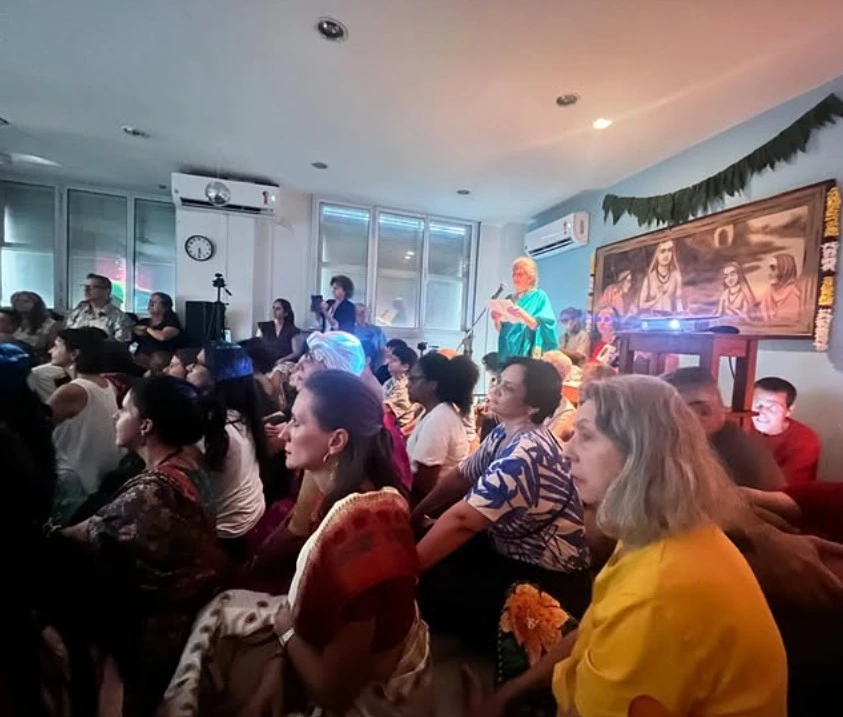
A year-end fellowship at Vidya Mandir
Atithi Devo Bhava: The guest is divine
Gloria’s fondness for India also stems from the way she was treated as a foreigner.
In Indian homes, even unexpected guests are treated with honour, food, and hospitality. This ethos of spontaneous reverence speaks volumes about the Indian worldview.
Gloria Arieira
She recounts times when strangers welcomed her not just into their homes, but into their lives. “They treated me not as an outsider, but as someone sent by the divine. This is something you don’t find everywhere.”
To Gloria, India is more than its temples, texts, and rituals. “Its a place where philosophy is not just studied but lived. Visitors don’t just admire the monuments or landscapes, they are moved by the warmth and depth of the people,” says the Vedanta exponent who considers India as her soul’s second home.
A culture of giving
Another deeply ingrained Indian value that Gloria has absorbed is the idea of dāna, or selfless giving. “There is no fixed price for generosity,” she explains. “It must be done with respect, abundantly, without arrogance, and with wisdom.”
She recalls numerous moments in India where strangers offered help, meals, or kind words without any expectation in return. “Even in casual encounters,” she says, “if you’re talking to an Indian, they’ll often offer you tea or sweets, even if they have to get it from a restaurant.”
To the young Gloria, this gestures was a sacred expression of interconnectedness, one that has brought her back to India seven or eight times since her first visit in the 1970s.
The bridge between continents
Though Gloria doesn’t speak any Indian language fluently, her command over Sanskrit, the language of the Vedas is precise and profound. “I studied Sanskrit to understand the Shāstram, not to speak it. I love the sound of Tamil and Hindi when spoken, but unfortunately, I can’t communicate in them,” she remarks.
Yet language has never been a barrier in her journey of the heart. Through her teaching, translations, and tireless efforts, she has built a bridge between India and the Portuguese-speaking world, not merely by translating texts, but by transmitting their essence.
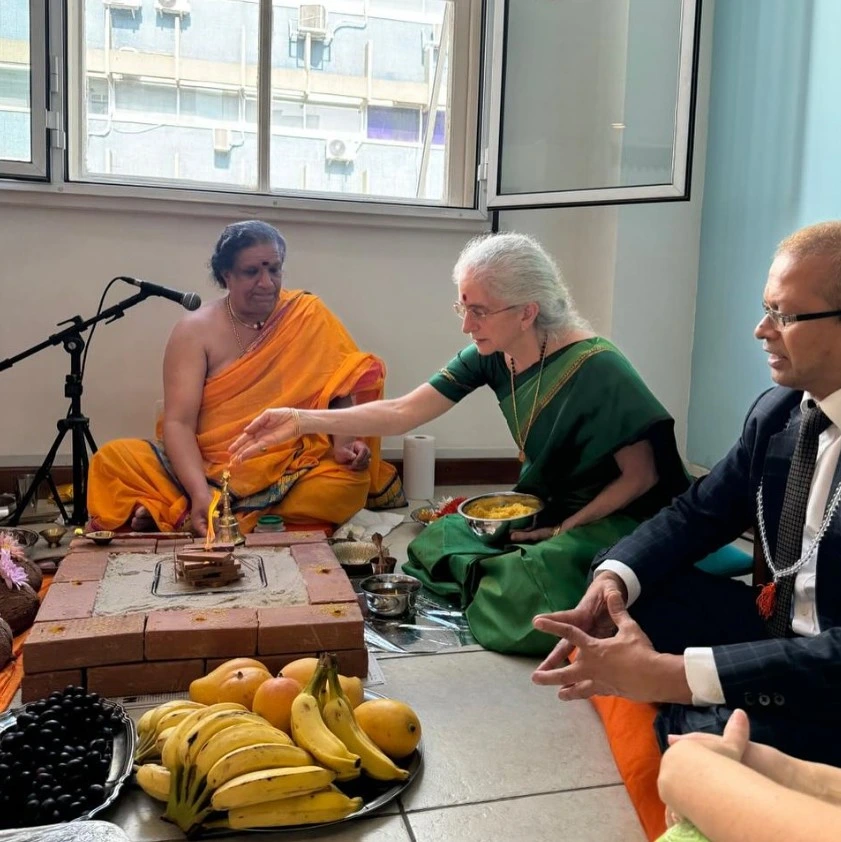
Gloria Arieira during a satsang in Brazil
A seeker, a teacher, a messenger
“India is deeply desired and admired for its cultural heritage,” Gloria remarks. “Its roots in the Vedas, its values of knowledge and giving, and its reverence for others make it truly special.”
Indeed, for Gloria, India was not just a destination when she first visited the country in the 1970s. It was, and still remains, a source of inner transformation. Her life’s work is a living example to the enduring power of spiritual heritage. Her journey is a reminder that the light of the Vedas transcends borders.
Throughout her life Gloria Arieira has been celebrating the essence of a civilization that continues to shine.
- To learn more about Gloria Arieira’s work, visit the Vidya Mandir website
- Discover Gloria Arieira’s published works on Indian spirituality here




